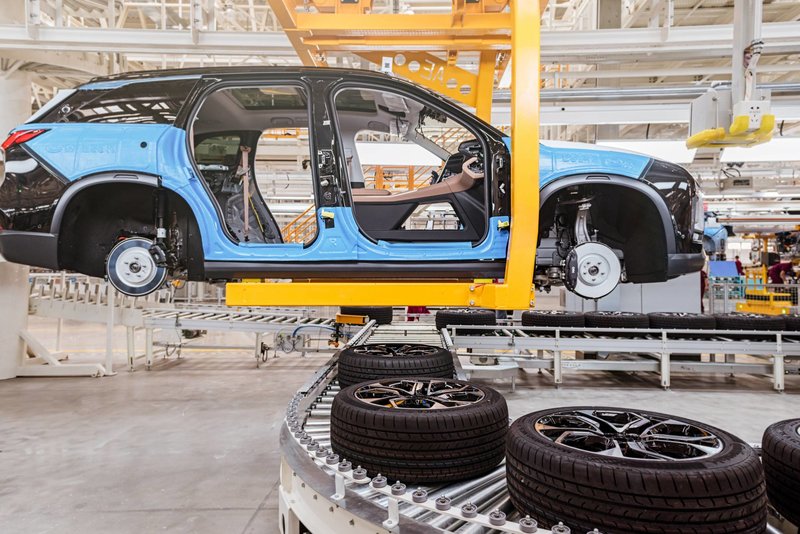估值是销售收入的110多倍,蔚来上市是否操之过急?

|
最近科技界有哪些令人兴奋的消息呢?首先是上周三有新闻称,一家已经成立快20年的创业公司“调查猴子”(SurveyMonkey)已经提交了上市文件——尽管它的业绩向来平平。与此同时,成立不到三年的中国电动汽车制造商蔚来汽车也提交了上市申请。虽然蔚来汽车现在还没做出什么成绩,但它对资金的胃口却着实不小。 蔚来汽车提交的上市文件称,该公司的中文译名是“蓝天将至”的意思。不过从上市文件上看,这家公司许诺给投资者的,除了蓝天,确实就没什么别的东西了。蔚来汽车去年才将第一款车型推向市场,目前只卖出了不到500辆。(注:这里并非笔误,正确的数量就是500辆。)今年上半年,蔚来汽车的销售额只有700万美元,而负债则达到5亿美元(再次注明,这仍然不是笔误。) 换句话说,蔚来汽车相比于特斯拉,正如特斯拉相比于其他传统汽车厂商——一个光鲜亮丽的东西,却将自己打扮得像一家真正的公司一样。 蔚来汽车企图靠上市圈到10亿美元,这不由得让我们想起了20年前的“.com”泡沫。当时,很多创业公司也将前景描述得天花乱缀,企图将股民都忽悠成天使投资人。即便如此,被忽悠瘸的股民也是有不少的。这些公司的下场一般都不会太好。 除了勃勃野心,蔚来汽车就没什么其他东西了。“我们相信,更加先进的智能电动汽车技术,加上更好的拥车体验,将推动人们对智能电动汽车的青睐和采用,从而实现我们为地球带来蓝天、带一个更加可持续发展的未来的愿景。”该公司的CEO写道。除了卖愿景,蔚来汽车还有几个重量级的投资人,比如高瓴资本和中国互联网巨头腾讯等(这两家公司共拥有该公司近四分之一的股份)。 蔚来汽车的上市文件还有几处值得注意的地方。首先它的“风险”是我见过的上市文件里最多的,从地缘政治风险,到对复杂资本结构毫无经验的风险。另外,这份上市文件还用了好几页的篇幅,宣扬中国汽车市场的吸引力,但这些都没改变一个事实——这家公司连500台汽车都没卖出去。 资本主义是个光鲜的东西,所谓的透明资本市场也是如此。股民有权利向未经证实的创业理念押宝,就好像不会有人拉着他们的胳膊,不让他们坐到拉斯维加斯的赌桌前面一样。(财富中文网) 译者:朴成奎 |
These are exciting times. Wednesday brought news that a long-in-tooth startup, SurveyMonkey, wants money from investors despite its lackluster results. Around the same time a barely three-year-old Chinese electric car maker called NIO also filed to go public. It, however, is attempting to raise even more cash despite having accomplished almost nothing at all. Amusingly, NIO’s Chinese name translates into “blue sky coming,” according to the company’s securities filing. That’s appropriate because NIO’s promise to investors is all blue sky—and little else. The company shipped its first car last year and to date has delivered just under 500 of them. [Note: not a typo. Five hundred is the right number.] NIO rang up sales of $7 million in the first half of the year while losing half a billion dollars. [Again, not a typo.] In other words, NIO is to Tesla (tsla, -0.42%) what Tesla is to any established car marker: a bright, shiny object masquerading as a real company. NIO’s attempt to raise more than $1 billion is reminiscent of the dot-com bubble of nearly two decades ago. Back then frothy new companies offered regular investors the opportunity to pretend to be venture capitalists. They too could throw down on startups with no track records. Things generally didn’t go so well. NIO is nothing if not ambitious. “We believe that improved smart electric car technologies, coupled with better experience of car ownership, will drive increased appreciation and adoption of smart electric cars, leading to the fulfillment of our vision of blue skies and a more sustainable future for our planet,” its CEO writes. It also counts heavyweight investor Hillhouse Capital and Internet giant Tencent as backers. (The two own nearly a quarter of the company.) NIO’s offering document is notable in other ways. I can’t remember seeing a longer list of “risks,” from geopolitical concerns to its own inexperience to a complicated capital structure. It also contains page after page of fascinating information about the Chinese automotive market, none of which changes the fact that NIO hasn’t yet shipped 500 cars. Capitalism is a glorious thing, as are transparent capital markets. Investors are free to gamble on unproven upstarts, just as there’s nothing stopping them from pulling the arm on a slot machine in Vegas. |













